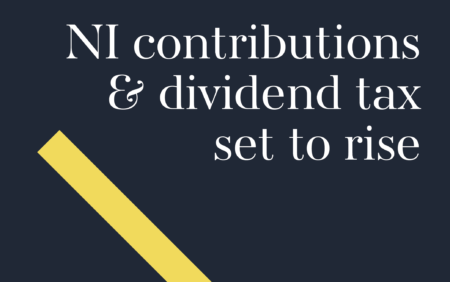National Insurance Contributions Set To Rise

Boris Johnson recently announced a UK-wide tax increase to fill the health and social care funding gap that formed during the pandemic. This tax increase breaks one of his manifesto promises, but the £36 billion that will be raised over the next 3 years is said to be the biggest catch up programme in the history of the NHS.
This tax increase comes at a time when many are struggling with their finances and businesses, following the pandemics impact on jobs and the economy. Business groups such as The British Chamber of Commerce have warned the increases will seriously harm the country’s recovery and disregards the damage we have already suffered through.
How much will it increase by?
The tax will start as a 1.25% rise in National Insurance from April 2022, if approved by Parliament. Eg. For every £1,000 on a wage slip, a further £12,50 will be removed. A person earning £30,000 will see their NICs increase by £255 a year. The same amount will be levied from employers.
In 2023 this will become a separate tax on earned income, named the Health and Social Care Levy.
How will it impact dividends?
Business-owners and investors will also be hit with the tax on dividends rising by 1.25%, designed to target those who own shares in order to pay for the reforms.
This will greatly impact the owners of small businesses, many of whom didn’t have access to any financial support from the government throughout the pandemic, and have already been struggling with the debt and covid-regulation burdens of the last 18 months.
What will this pay for?
The tax increase will cover the funding gap for health spending initially, before shifting to social care.
As a part of this new deal there will be a cap placed on the total amount anyone will spend on their residential care. From October 2023, no one starting care in England will be forced to pay more than £86,000 across their lifetime. This should ensure that anyone with savings up to that level will not have to sell their homes to pay for care and will be able to leave the value of their home and other assets to their families.
Anyone with assets of less than £20,000 will have their full care costs covered by the state, rising from £13,000, and those with less than £100,00 in assets will have theirs subsidised.
A part of the revenue will also be allocated to devolved administrations, estimated to rise to £2.2bn, with about half going to Holyrood in Scotland.
Get More Business Blogs Like This
Like Us On Facebook | Follow Us On Twitter | Follow Us On LinkedIn



